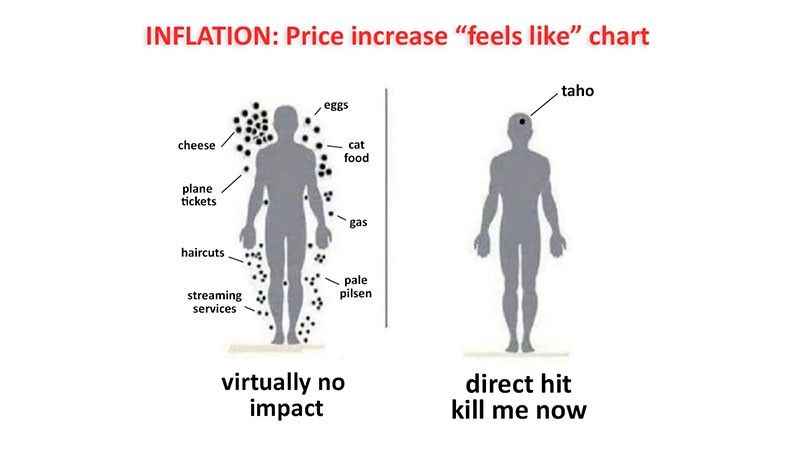February inflation quickened to 3.4% y/y

The Philippine Statistics Authority (PSA) [link] said that Philippine inflation for February quickened to 3.4% y/y, up from January’s 2.8% y/y increase. Month-on-month, the consumer price index data increased 0.56% from P124.8 in January to P125.5 in February. The PSA said the main drivers of the increase were the y/y increases in food and non-alcoholic beverages, plus an increase in the cost of transportation, housing, water, electricity, and gas. Core inflation (excluding certain food and energy items) slowed to 3.6% in February, down from 3.8% in January. This marks the first monthly acceleration in inflation after four consecutive months of deceleration. There were many interesting responses to this data, and I’ll quickly summarize them here:
> The BSP: Our central bank, the Bangko Sentral ng Pilipinas (BSP) [link], said that the 3.4% February inflation figure was “within the BSP’s forecast range of 2.8 to 3.6 percent,” but that inflation figures going forward could accelerate beyond the BSP’s target range as we lose the benefit of the “negative base effects” we experienced in Q1. The BSP also warned about the “adverse impact” of El Niño, and about the combined impact of that weather phenomenon and “positive base effects”. The BSP said that it would be “appropriate to keep the BSP’s monetary policy settings unchanged in the near term”.
> The NEDA: The National Economic and Development Authority (NEDA) [link] issued a statement to warn that the “potential impact of a strong El Niño weather pattern on food prices is a significant concern for our community.” NEDA noted that the government is “intensifying its efforts” to mitigate the impact of El Niño on food prices. NEDA did not mention the specific efforts that it has or will intensify in this battle against rising prices, but did say that it was “actively formulating robust strategies with the concerned agencies,” and also “collaborating closely” with the International Rice Research Institute to “increase the country’s rice production.”
> The Department of Finance: The Department of Finance (DOF) [link] Secretary, Ralph Recto, said that the government expects the impact of El Niño to “peak this month and persist until May,” and that its plan (called Reduce Emerging Inflation Now, or “REIN”) to keep “prices of goods and services stable and affordable” is already in place. Mr. Recto said that “protecting the purchasing power of Filipinos is a top priority of this administration.” The Dof said that the “expeditious execution” of the 2024 national budget is important to “enable the timely implementation of measures aimed at enhancing agricultural production”, and that the government “continues to explore more rice trade agreements to ensure the stable supply of rice.”
> Analysts: The general sentiment among economic analysts was that this result was negative. Jun Neri (BPI) said that this “could mean shrinking space for policy rate cuts later this year”. Nicholas Mapa (ING) said that the BSP’s “restrictive stance has only a cursory impact on taming inflation”, and that our troubles remain “supply-side in nature.” Still, some analysts were calling on the Monetary Board to cut rates to juice economic performance, such as Mark Caniizares (Manulife), who said that cutting rates would “create a more conducive environment for corporations to expand businesses while consumer spending can further accelerate.”
MB bottom-line: You’re not going to like what you see if you read between the lines. This isn’t a disaster print, and it’s not a shocking surprise, but it is a sobering reminder of how little has changed and how exposed we are to additional shocks. Everyone still saying that the problem is supply-side. Everyone still saying that the government is in the best position to mitigate the problems. El Niño’s warm, dry embrace clearly has most parts of the government scared, but what’s got me concerned is the overall lack of specifics. From a PR perspective, it’s the cheapest thing in the world to say things like “intensifying efforts” because you get all the benefit of the impression of action without any of the expense. So what does it mean if the BSP isn’t in a position to cut rates as soon and as fast as the market had hoped? In a word: delay. We’ll probably have to wait longer for the full roster of equity-raising activities to hit the market. We’ll have to wait longer for the growth that comes from a drop in the cost of debt. We’ll have to wait longer for the market to take its boot off the neck of our REITs and fixed-income products. At the end of the day, though, these are just problems for my investment portfolio. I’m lucky enough to not have to worry about how expensive food has become, but there are so many people in my life who are already struggling to make basic ends meet that I can’t help but feel depressed about their struggles. The end is not in sight for these problems, and it could get worse before it even has a chance to get better.
---

Merkado Barkada is a free daily newsletter on the PSE, investing and business in the Philippines. You can subscribe to the newsletter or follow on Twitter to receive the full daily updates.
- Latest






















